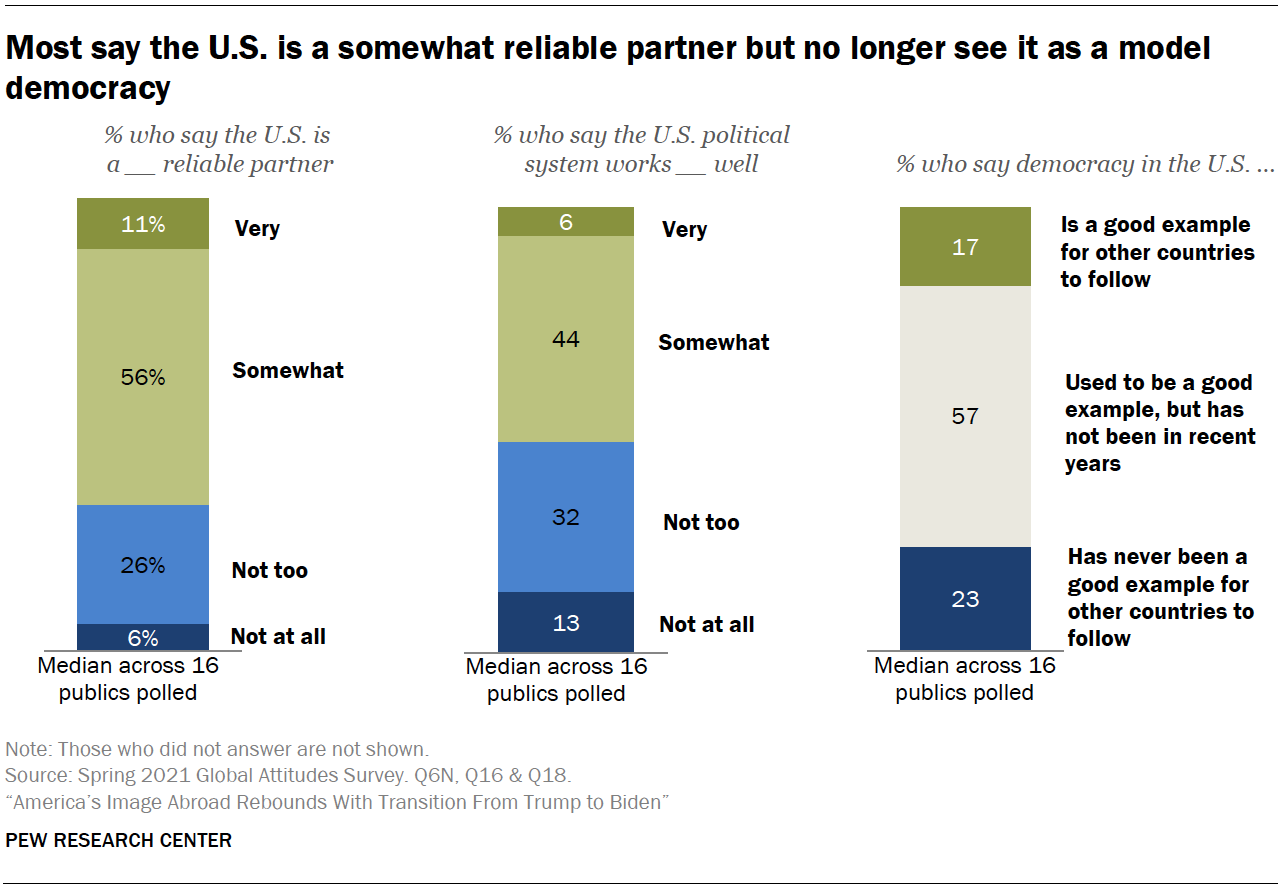Where credibility matters most is in diplomacy, but Washington rarely exhibits the same level of concern when U.S. leaders diminish the value of America’s word. As American diplomat par excellence, William Burns, explains in The Atlantic, credibility in diplomacy is vital since America’s ability to mobilize other countries around common concerns is becoming more crucial
in a world where the U.S. no longer can get its way through diktats. He asks, If our elected representatives won’t give a negotiated agreement a fair hearing, support it, or at a minimum avoid undercutting it even before the ink dries, why would any friend or foe enter into any kind of good-faith negotiations with the U.S.?
In a democracy, Secretary of State Antony Blinken asserted, there is no way to tie the hands of a future president. Essentially, he argued that America is inherently untrustworthy because it is a democracy, and that, contrary to what Mattis asserted, the U.S. does not have to honor its word. One would expect an authoritarian to make such a charge against a democracy and not the democracy to freely admit to it.
Blinken’s statement not only serves as perhaps the worst argument made for democracy, but it also contradicts liberal theories about the superiority of democratic governance in international relations. Democracies are considered more stable and pursue a more consistent foreign policy, whereas the abrupt leadership changes in autocracies also give rise to massive swings in policy. Moreover, because of the many domestic constraints leaders face, making promises that they do not intend to keep is more politically costly and thus less common, scholars of international relations conclude. This makes democracies more credible.
Trita ParsiOne might debate which event harmed US credibility more in recent years: unilaterally leaving the nuclear Iran deal, the January 6th events, or the retreat from Afghanistan, but that’s a somewhat irrelevant distinction, as the damage is cumulative over time. If the US may come and go from international treaties as they please depending on its president’s shifting views, then what value does NATO have going forward? What value do the current negotiations with Russia over tensions in Ukraine have? Or efforts to combat the pandemic and climate change?

Antony Blinken’s statement becomes more remarkable and ominous the more you think about it. In a functioning democracy, once an international treaty is adopted through parliamentary proceedings, it effectively becomes law, and cannot be overturned unless a future Parliament decides so – and that’s exactly why democracies are supposed to have a more consistent foreign policy. To say that there is no way to tie the hands of a future president
is to argue that American presidents are in fact above the law, the very concept that Trump tried to impose his entire term and numerous officials opposed. Thus, US foreign policy in no longer under the (supposedly) democratic control of Congress, but subjected to the personal whims and affinities of whoever becomes President…
Post a Comment